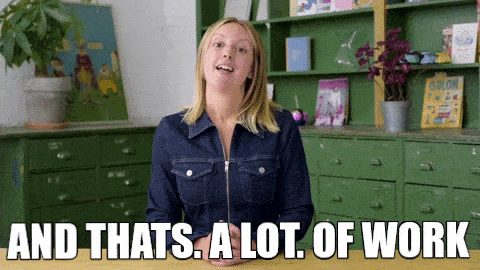March 12, 2025
Yesterday I wrote a blog about why I started Youda. In it I mentioned that I’d had more than my fair share of “qualified successes”.
Well, I’m a believer that you learn more from your failures than you do your successes. So in that spirit, I thought I’d share what I learnt from my greatest failure and how it set me on a journey to what would eventually become Youda… and hopefully it’ll help you avoid making the same mistake I did.
So, seven or eight years ago I was working as a consultant for a large retail chain.
They’d been trying to improve customer service for some time, and they had done all the right things: clear messaging from leadership, consistent internal comms about the behaviours they were looking for, new reward and recognition programmes, training for managers and their teams… all the good stuff…
… but none of it really seemed to be working. For all their endeavour, their NPS scores and sales weren’t really moving.
In walk my business partner and I.

At the time we had this lovely idea. We wanted to take ways of working we’d seen in agile software teams and introduce them to front line teams in restaurant chains, retailers and hotels.
Most customer service improvement programmes were (and probably still are) top down initiatives. Someone in Head Office designs a new customer journey with key service behaviours and then it gets cascaded out to the business.
Our view was that:
So essentially our plan was to give store teams the autonomy to develop and test their own ideas about how they could improve customer service. We’d try and support managers so they could facilitate ideation sessions with their teams, we’d try to give them some inspiration from behavioural science research and design thinking, and then we’d encourage them to get cracking.
We’d get them to test their idea for a week or two, and then try and give them the data they needed to evaluate whether it had worked or not. If it did, great. If not, no problem, we’d just encourage them to test something else.
After a couple of months we were in a muddle. The teams had been really receptive to the new way of working, but they were really struggling to do it consistently and people were becoming disillusioned. And the data from customer feedback and sales was really patchy. We’d see spikes of improvement, but every time we thought we might have something exciting to take back to our exec sponsor, the numbers would fall away again.
It was really frustrating - however hard we tried, we couldn’t sustain the performance improvement for long enough to generate meaningful evidence.
So what was happening? Well after the project finished, I went down a bit of a rabbit hole reading research from social psychology and systems thinking to try and find an explanation.
And my conclusion was this…
One of the insights I picked up from my social psychology reading is that it helps to see behaviour as a point in tension. That means you can change behaviour in two ways. You can increase the ‘pull’ towards the behaviour you want. Or you can release the ‘constraints’ holding people back from behaving in that way.

Leadership messaging, training, rewards and recognition all acted as ‘pull’ factors towards the desired service behaviours.
But in this business it didn’t matter how hard you pulled, because the constraining factors were too strong. On the ground, the problem wasn’t that team members didn’t know how to do a good job for customers; it wasn’t that they didn’t want to do a good job for customers; it was that they didn’t have enough time to do a good job for customers.
There was too much paperwork to fill in. Too many SKUs that needed restocking. Too many deliveries that arrived late and with damaged stock. So when team members ought to have been on the shop floor helping customers, they were in the warehouse.
And here’s the key point: in these circumstances, every time you introduce a new pull factor, you actually make the situation worse.
Imagine you’re a store manager with a team of 10. You’re already struggling with the workload. Now you’re asked to send all your team on a training course. At least in the short term that’s going to make things worse.
And when this happens, people become understandably cynical. They think leaders are making unreasonable demands and that they’re disconnected from reality. They start to look for shortcuts or workarounds (like submitting their own customer feedback scores) and the tension becomes entrenched.
It was an important lesson for me - one I’ve never forgotten. It’s why Youda is designed to understand people’s behaviour in context. It’s why I’m so interested in trying to identify the causal relationships between the hidden social, cultural and systemic influences on our behaviour and the desired business outcomes.
And most importantly, it’s why the initial focus for our automations is on finding ways to give people time back. Your typical Head of People in hospitality is absolutely swamped with ad hoc requests from colleagues. And this is on top of the time they already spend manually processing data and getting through the huge admin burden of people management that needs doing just to keep the show on the road.

So if you want to turn the aspirations you have for your culture into the reality of your people experience, the place to start is by cleaning up all the stuff that isn’t working efficiently. All those repeatable HR processes need automation. So your People Team, Managers and front line teams can focus their time on the stuff that really makes a difference.
If you’re interested in finding a x10 ROI through HR automation, please book a demo call with me now.
Let’s have a chat.
